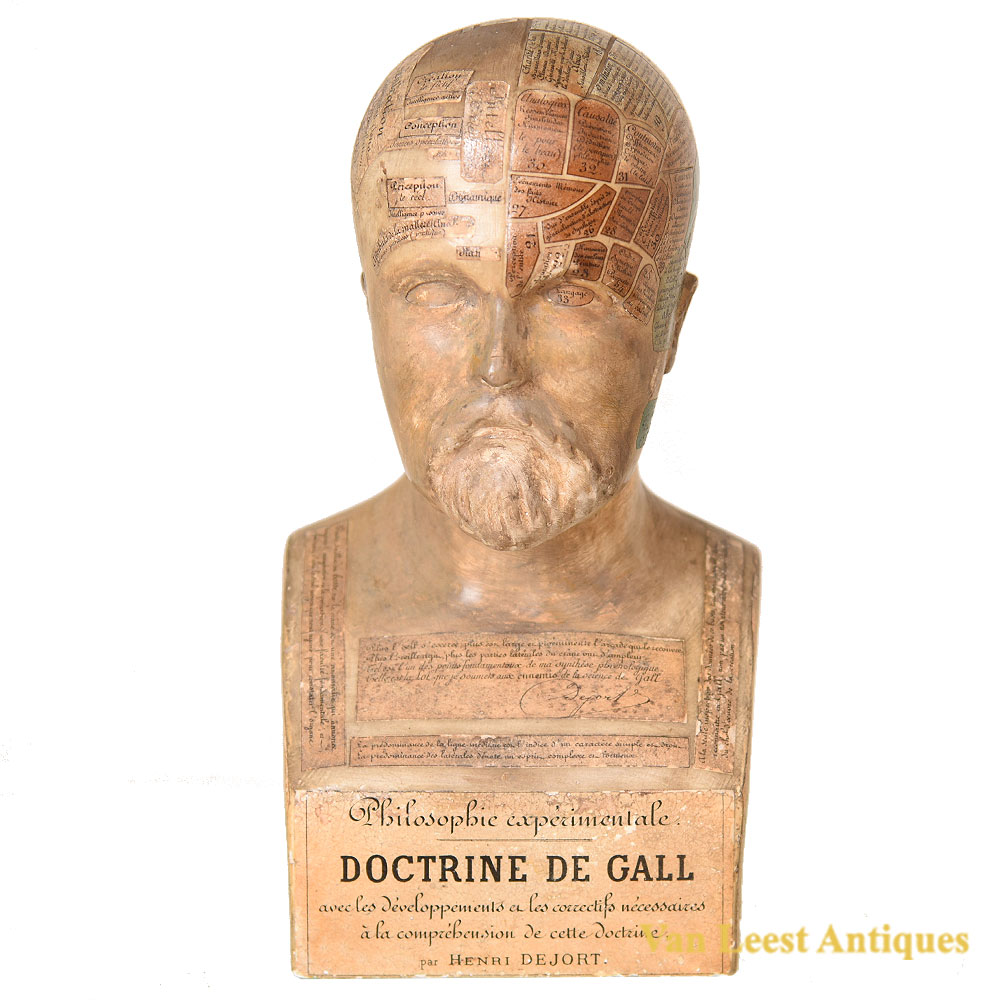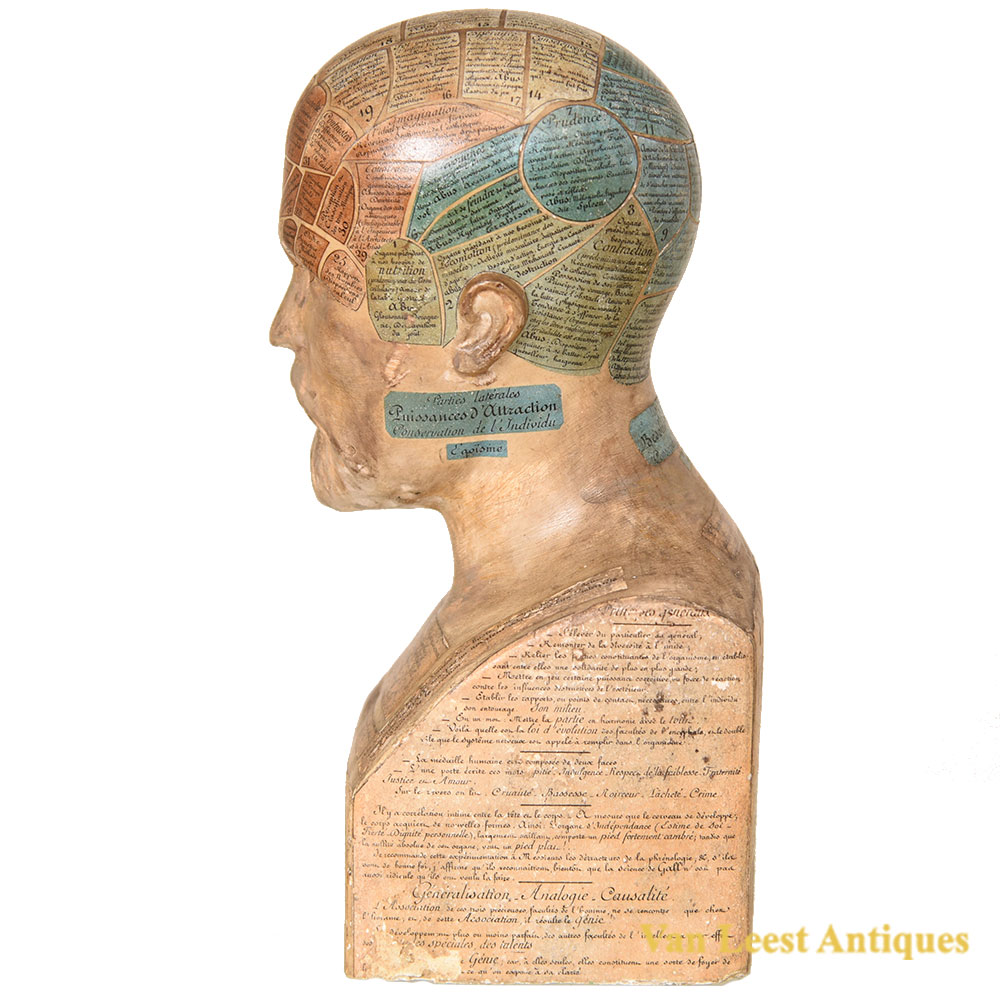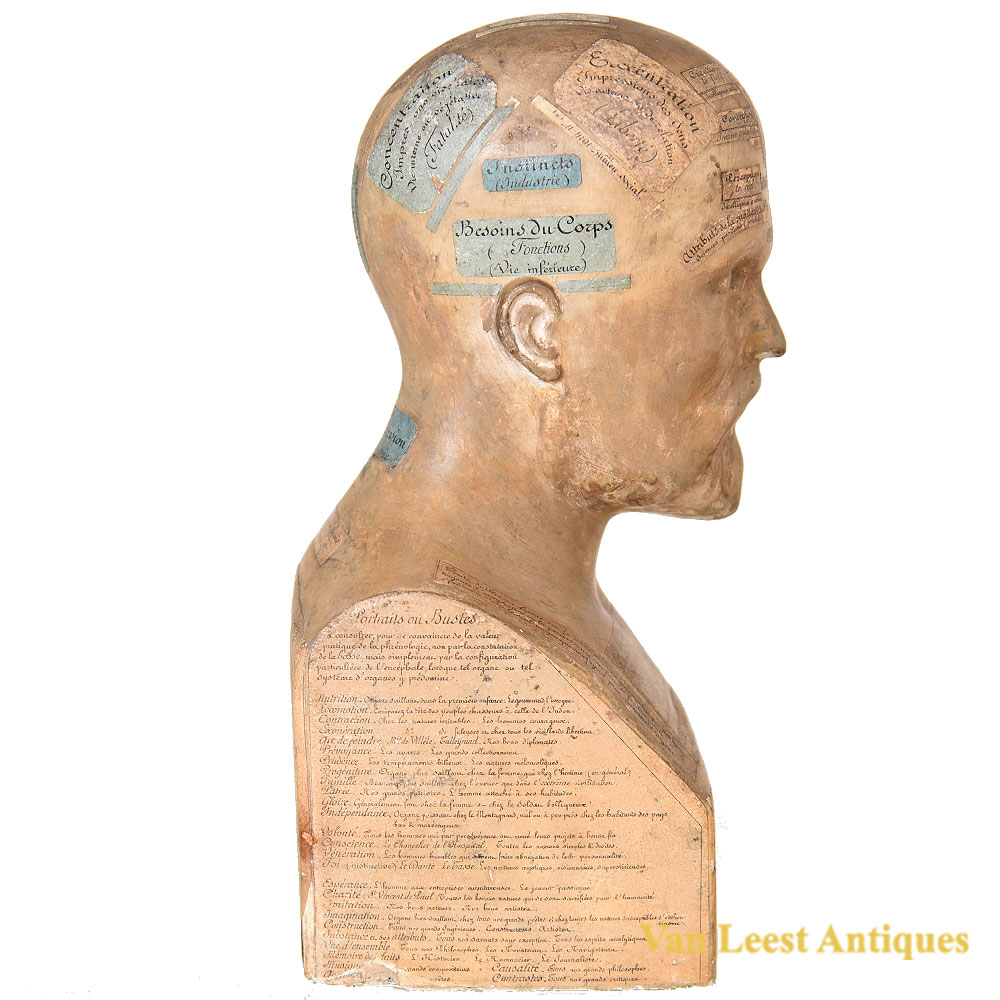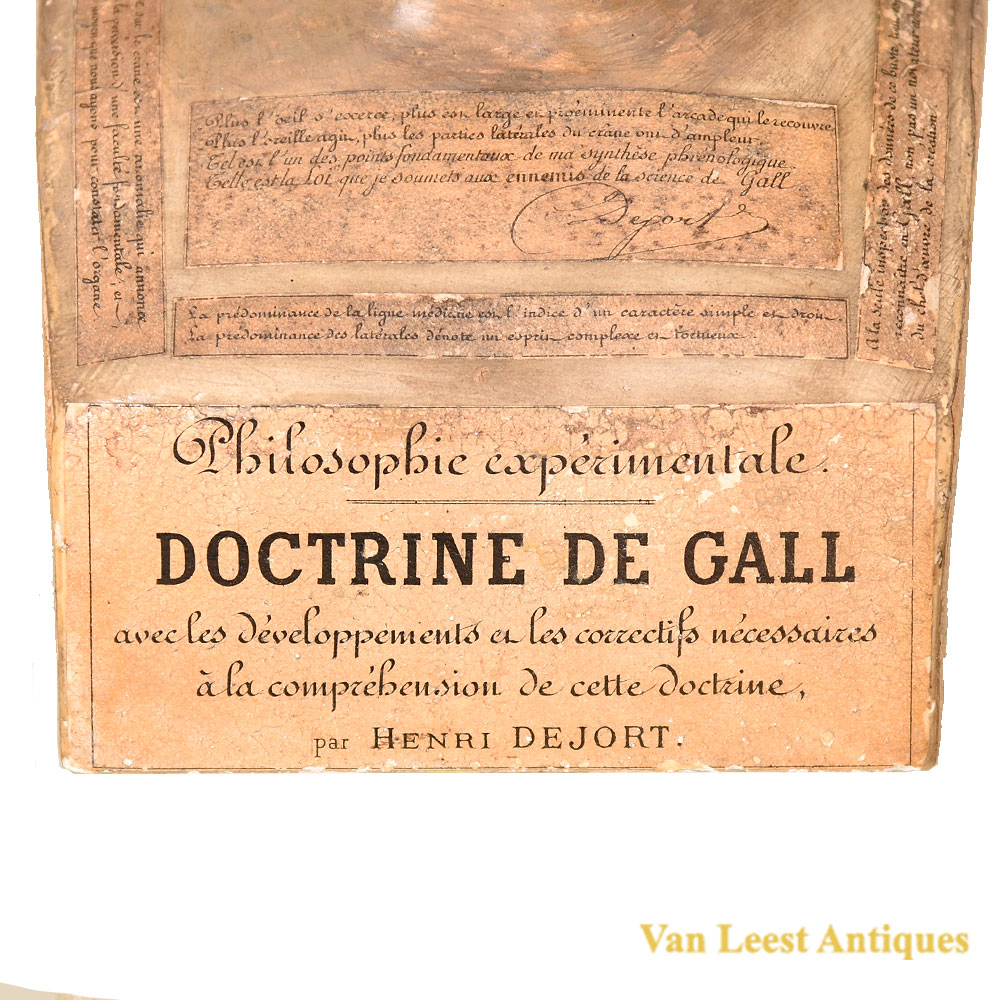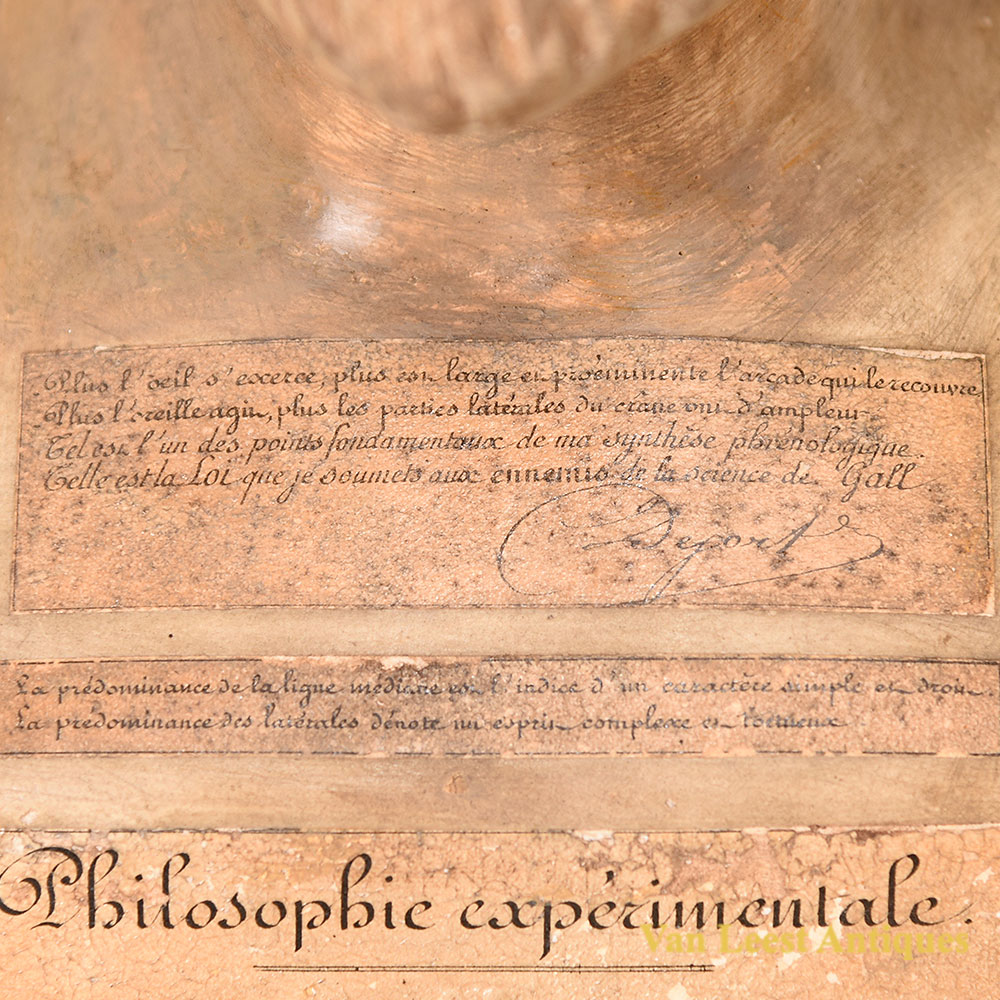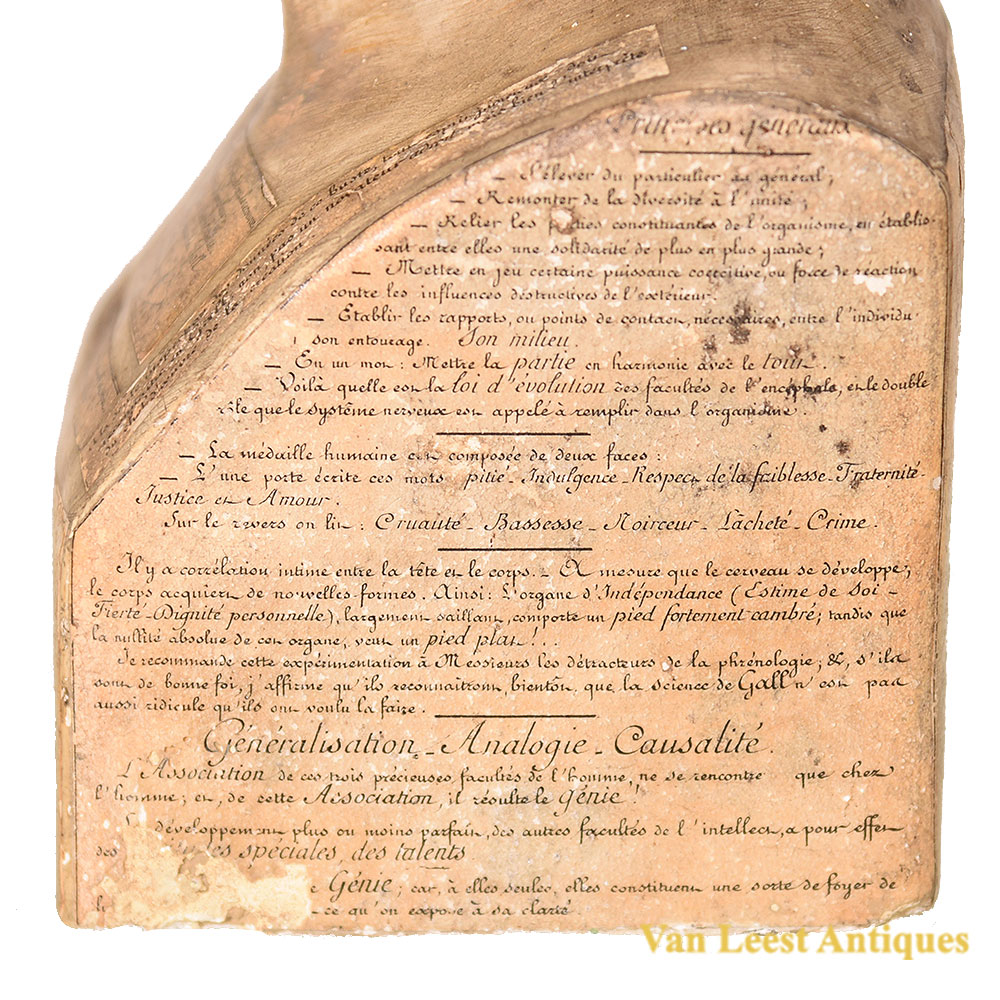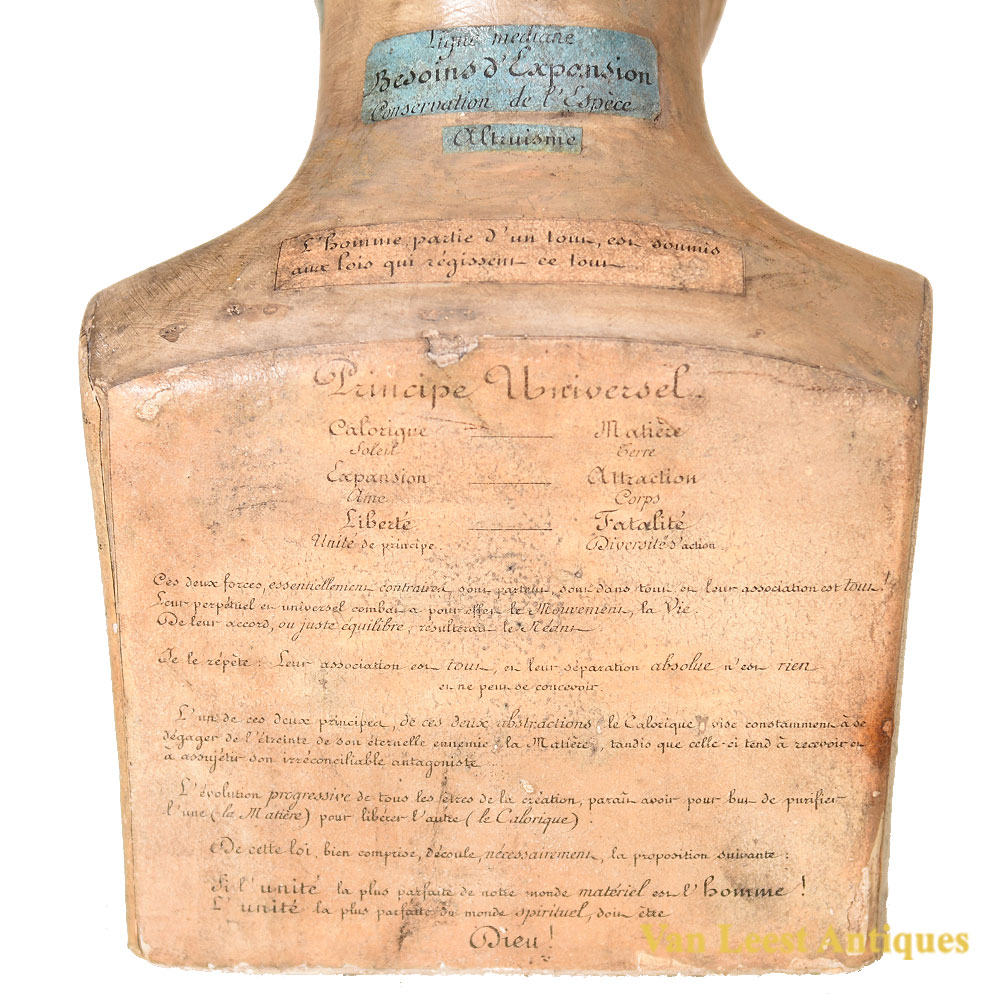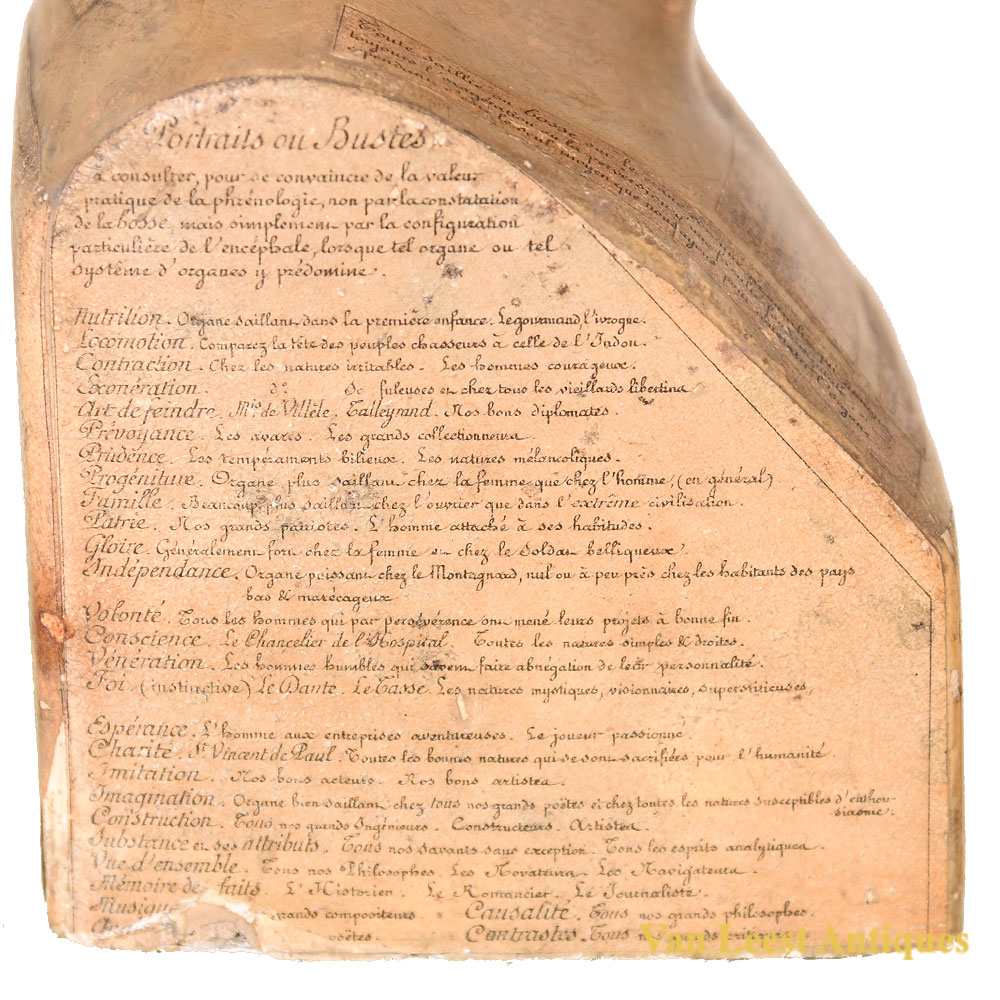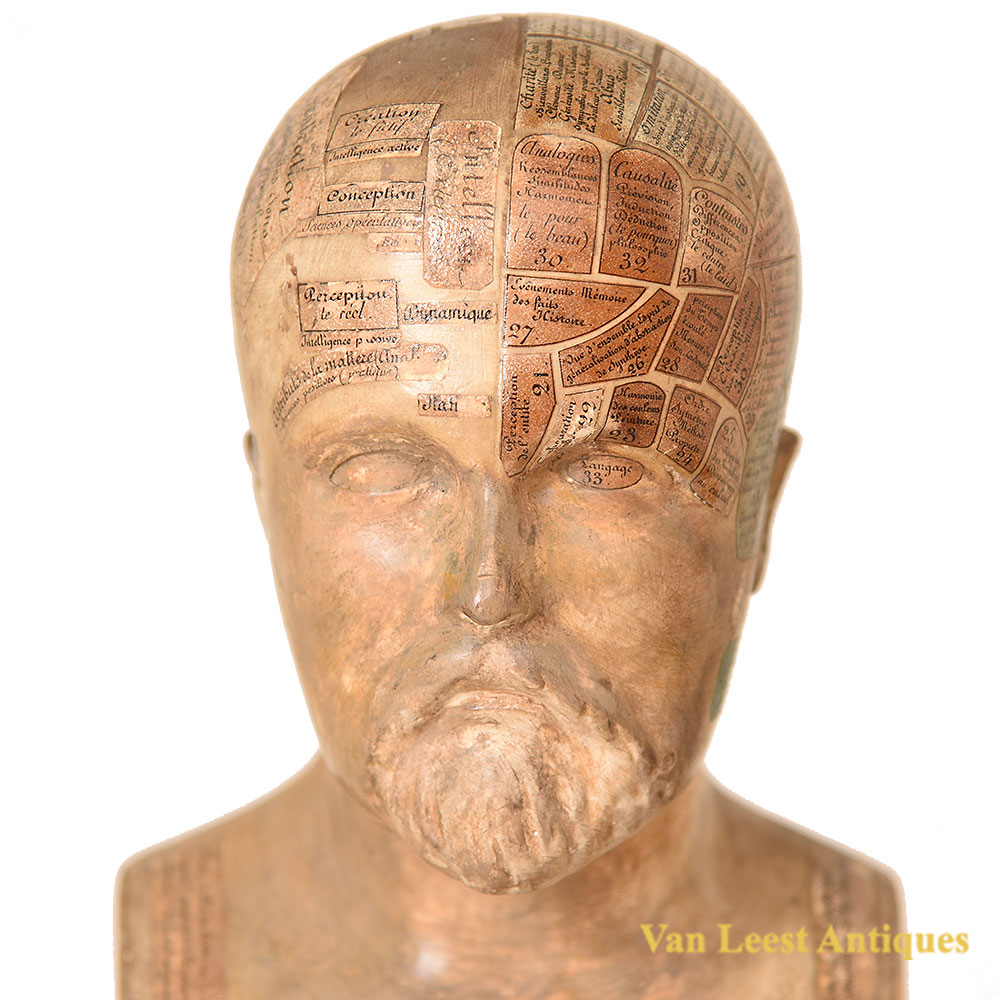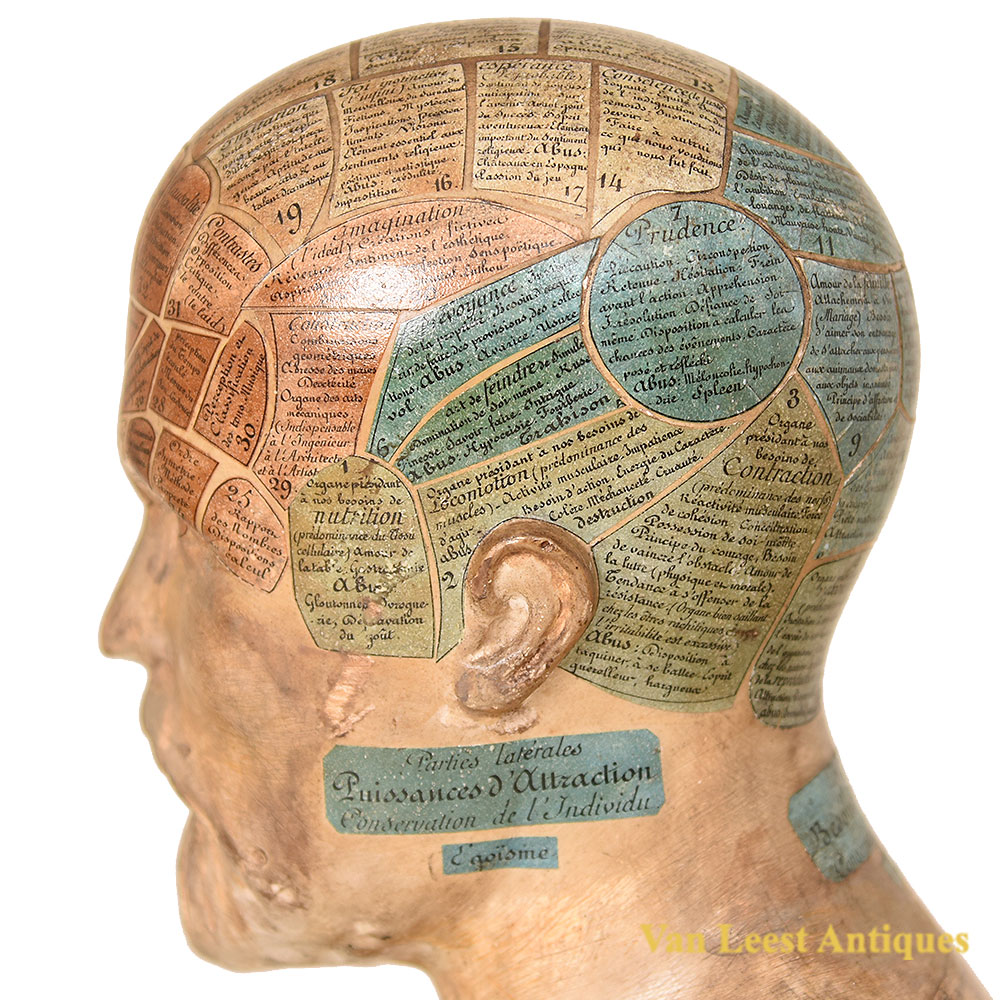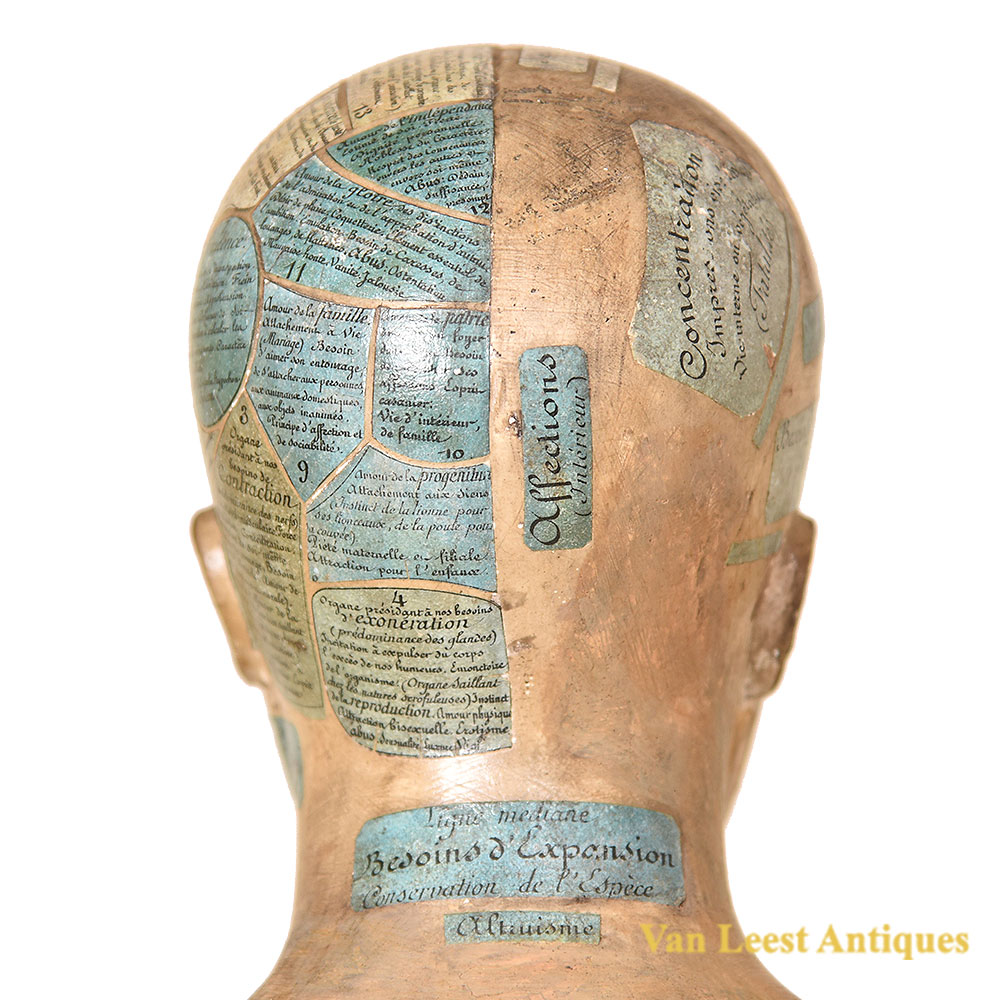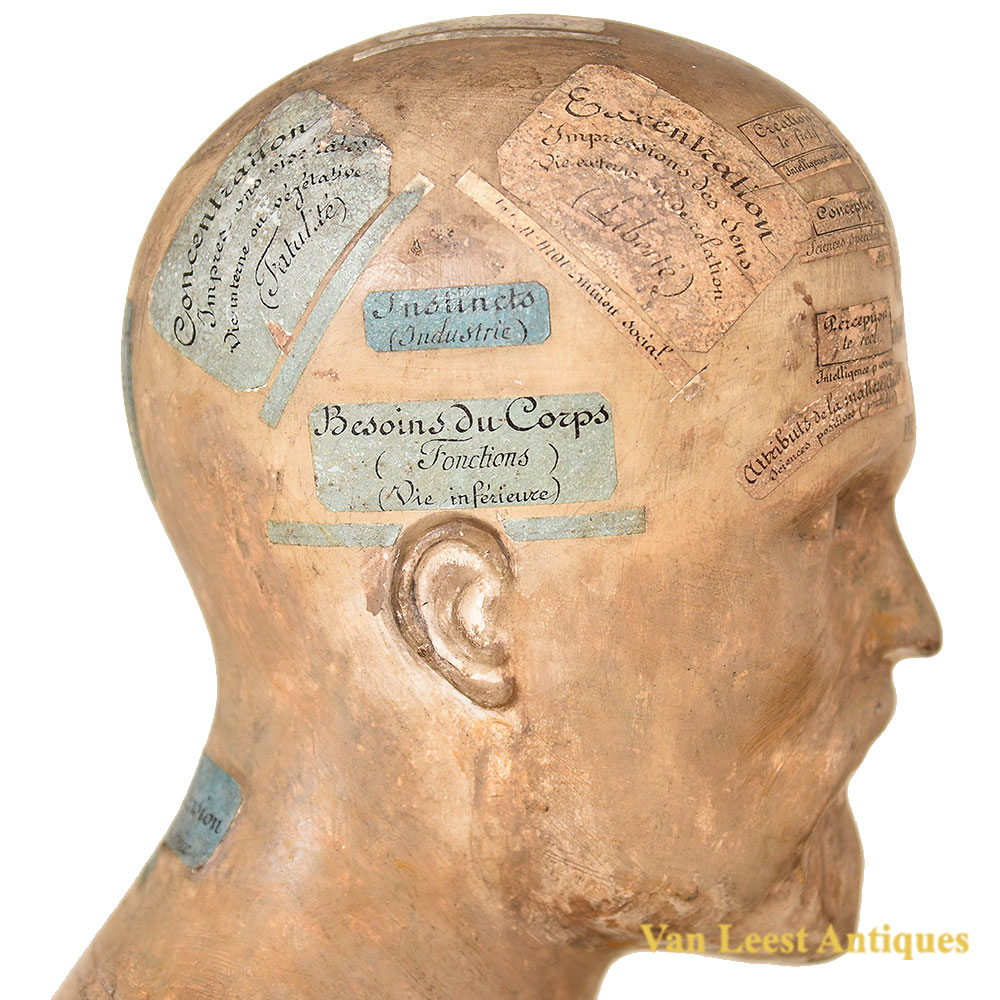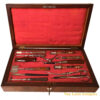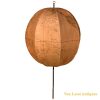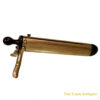Description
A plaster phrenology bust designed by Henri Dejort with printed signature at the base of the neck. This type is considered to be one of the latest and rarest avatars of the phrenological heads. Dejort was a mad scientist with no medical or scientific background as we learn in his Deux lettres sur la doctrine de Gall, adresées a l’un des members de l’ Institut (Rennes, 1870). In this pamphlet, he explains that his aim is to defend and rehabilitate Gall’s phrenology on the basis of new physiological and physiological and psychological discoveries on the cerebellum. Gall’s theories were developed at the end of the 18th century. Although they met brief success at the beginning of the 19th century, by the 1830’s most doctors had turned away from this medical philosophy. Furthermore, the considerable progress in neurology from the 1840’s definitively undermined the theories of Gall and Spurzheim. Therefore, Dejort’s developments came out quite late. At the end of the above-mentioned publication, Dejort advertises his small phrenological bust, offered for the sale at the price of 10 francs. It seems that almost no example survived.
Some dust, cracks and small losses, nonetheless, an attractive, unsophisticated example.
Dimensions: 25x13x10 cm.
Look for shop information on www.vanleestantiques.com
Ask the Dealer
Dealer information
 Van Leest Antiques
Van Leest Antiques
Van Leest Antiques
Van Leest Antiques, based in Utrecht in the Netherlands, specialises in antique scientific and medical instruments. Their collection covers mainly scientific and medical antique instruments: barometers, globes and planataria, nautical instruments, anatomical models, and pharmacy items. Toon Van Leest travels regularly in Europe and visits trade fairs, auctions, and antique dealers to collect stock and to find pieces to fulfil his clients' unusual requests.
As well as being an avid antique collector and dealer, Toon Van Leest is also a dentist. He believes that antiques are a stable investment, not reliant on trends or fashion, and have truly lasting value. Above all, he says, antiques are timeless and never lose their beauty.



